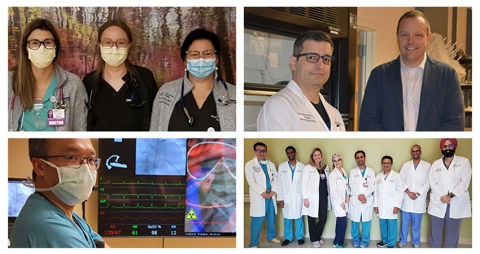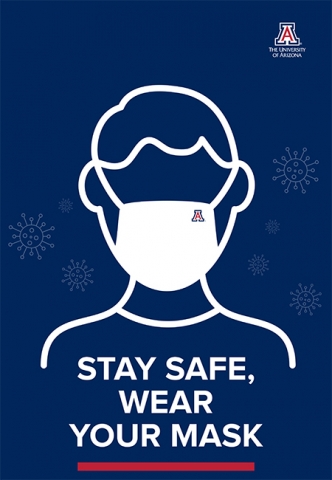A note to our community from Sarver Heart Center cardiologists

We know our patients with heart disease are at higher risk of complications if infected with SARS-CoV-2 virus, which causes COVID-19 illness. Community spread is increasing in Arizona and is occurring primarily in the unvaccinated at this point, demonstrating that vaccination works. We need more people to get vaccinated to keep our community safe and healthy.
We have been vaccinated to keep our patients, our families, our co-workers and our community safe. If you haven’t yet scheduled an appointment, please visit the Arizona Department of Health Services County Vaccine Resources webpage. The COVID-19 vaccine is free, safe and effective. If you have questions or concerns, please ask a trusted health provider, including your pharmacist. Please be aware that social media sites, and even some trusted news sources, may not have accurate or up-to-date information. We encourage you to get information from a health care provider. People 12 and older are eligible to receive the Pfizer vaccine. Ages 18 and older are eligible for all the vaccines offered in Arizona.
This excerpt from an article in the Arizona Daily Star by Drs. Felicia Goodrum Sterling and James Alwine, virologists at the University of Arizona, sums it up:
“With hundreds of millions worldwide and 161 million in the U.S. vaccinated, we know that the vaccine prevents severe disease, hospitalization and death and has few side effects. Yet, the virus continues to spread in the U.S. simply because more than 50% of the population has not yet been fully vaccinated and remains highly vulnerable to infection.”
They point out Arizona remains at risk with only 30% to 40% of the population vaccinated in large portions of the state.
“Some of my patients have raised concerns about heart inflammation (called myocarditis or pericarditis), which may have occurred following COVID-19 vaccination. These cases are very rare. We are seeing many more COVID ‘long haulers’ - patients who have ongoing heart and lung issues due to the impact of the virus on their health,” said Dr. Nancy Sweitzer. “Any health care procedure involves a risk:benefit calculation. The risks of vaccination are tiny, while the risks of COVID-19 infection are much larger and much more serious. This equation is simple, the vaccine is low risk and protects you and those you love.” Visit the CDC for the latest information on vaccine safety.
What About Masks?

“Consider where you are and the likely volume of virus that might be circulating in the surrounding area. If you live in a community with low vaccination rates (much of Arizona at this time) and growing transmission rates (also throughout most of Arizona), wear a mask when you’re around many people and you don’t know their vaccination status. While vaccinated people are at low risk of hospitalization or death, they can still become infected with new variants. While they are unlikely to become very ill, they probably can still transmit the virus and infect other unvaccinated people with whom they come into contact,” said Dr. Sweitzer.
Here are the current CDC guidelines for fully vaccinated people
"Our knowledge and understanding of this virus and the illness it causes are changing rapidly, as the scientific evidence grows. This is typical of any newly recognized illness," said Dr. Sweitzer. Keep up to date and get the latest scientific information and recommendations at trusted sources, such as the CDC.

